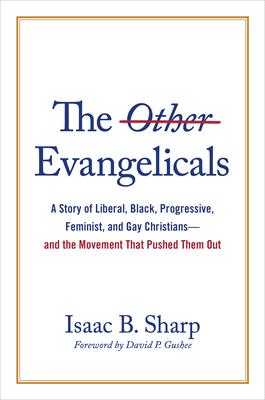What's the first thing that comes to mind when you hear "evangelical"?
For many, the answer is "white," "patriarchal," "conservative," or "fundamentalist"--but as Isaac B. Sharp reveals, the "big tent" of evangelicalism has historically been much bigger than we've been led to believe. In The Other Evangelicals, Sharp brings to light the stories of those twentieth-century evangelicals who didn't fit the mold, including Black, feminist, progressive, and gay Christians.
Though the binary of fundamentalist evangelicals and modernist mainline Protestants is taken for granted today, Sharp demonstrates that fundamentalists and modernists battled over the title of "evangelical" in post-World War II America. In fact, many ideologies characteristic of evangelicalism today, such as "biblical womanhood" and political conservatism, arose only in reaction to the popularity of evangelical feminism and progressivism. Eventually, history was written by the "winners"--the Billy Grahams of American religion--while the "losers" were expelled from the movement via the establishment of institutions such as the National Association of Evangelicals.
Carefully researched and deftly written, The Other Evangelicals offers a breath of fresh air for scholars seeking a more inclusive history of religion in America.
